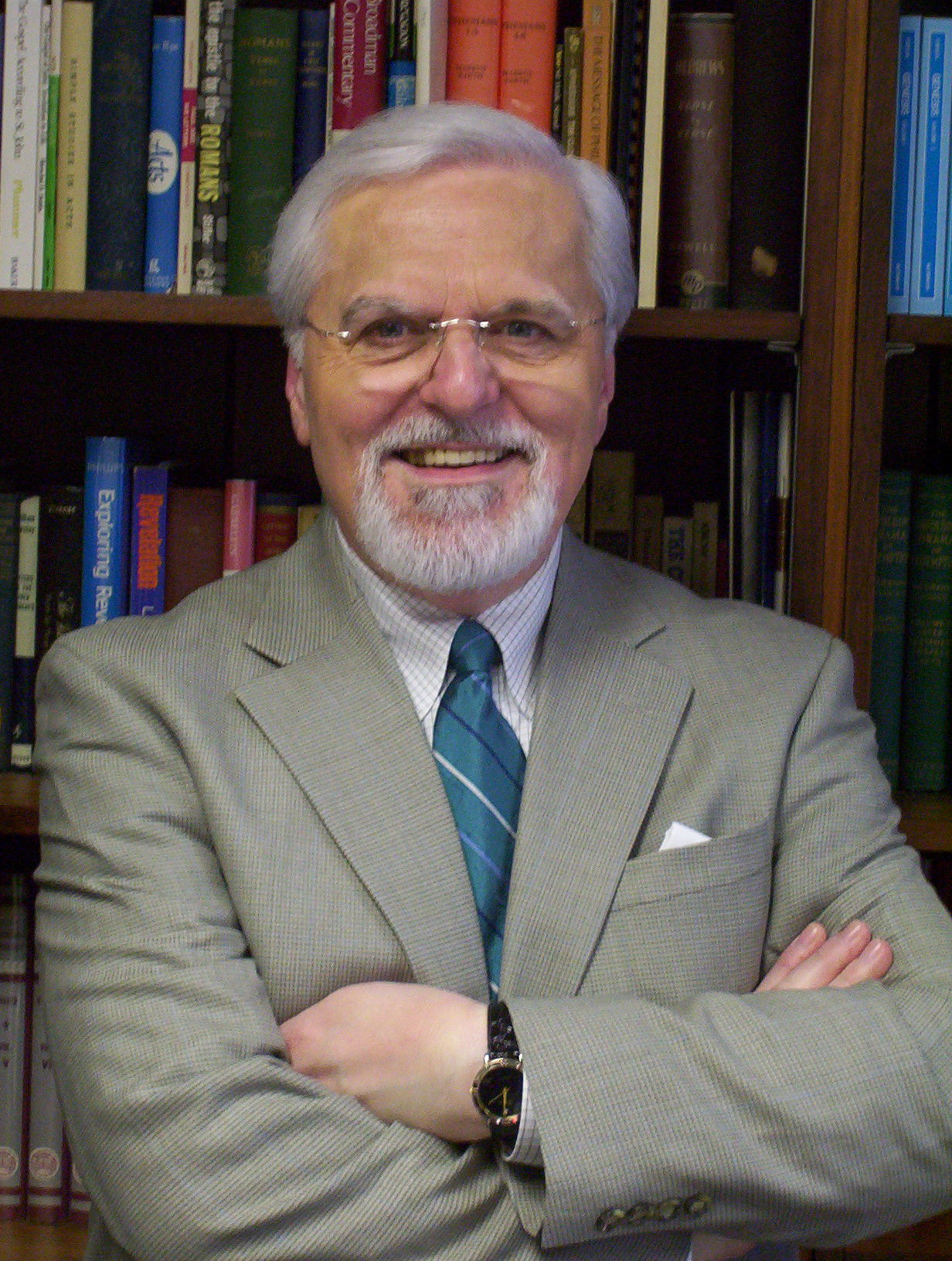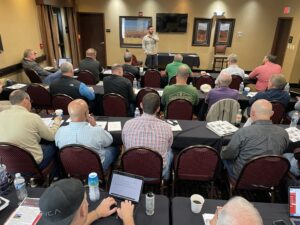
NEW ORLEANS (BP) — Lois Jane Kilgore started life on this earth just on the next ridge from where she ended it. She came and went in the very same bed (when Granny Kilgore died in 1963, mom got the ancient high-poster bed, dresser, etc.). This was Route 3, Nauvoo, Ala. (There are no more “routes,” due to the 911 emergency system needing every street and road to have a name.)
Mom was born July 14, 1916. She died June 2, 2012. Almost 96 years. Of her siblings, she was the last to go.
For most of her life, Mom mistakenly celebrated July 21 as her birthday. I’m not sure why, but no doubt it had to do with their being very rural, her being the sixth child in a family of nine children, and the way doctors kept records back then (meaning: haphazardly).
When she received a copy of her birth certificate from Montgomery and discovered her birthday to be July 14, my dad feigned shock. “That’s grounds for divorce,” Pop teased. “She was an older woman than I knew.” Her being only 17 and he 21 when they wed — March 3, 1934 — she could actually have used a little aging before taking on all she did.
She was the farmer’s daughter. She married a coal miner. Theirs was a hard life together for many years due to a number of factors: He was no churchgoer, he was a hard worker but also undisciplined in his personal habits, and poverty was a constant companion. But Mom made the most of the life she had chosen.
She was a champion.
They had seven children, all in a nine-year span. That’s hard on the mother. The photos of her in her late 20s, after birthing all these offspring, show her looking thin and weak.
Mom was raised right. Her parents, John Wesley “Virge” and Sarah Noles Kilgore, were faithful Christians who made the trek to church each Sunday in the mule-drawn wagon. Or they walked.
Mom used to say how much they all enjoyed the three-mile walk. A large cluster of teenage siblings walking the road to church in the later 1920s, early 1930s would tend to draw other teenagers. They laughed and talked, they sang, and they enjoyed life.
She was a singer. As a teenager, she knew hundreds of songs by heart. One Saturday night in 1930, a group of the youth were having their own “singing” at church — New Oak Grove Free Will Baptist Church, also familiarly known as Possum Trot, for some reason. As Lois and one of her sisters — Ruby, I think — were in front doing a duet, Carl and Gip McKeever, ages 18 and 16, walked in and took a seat.
No churchgoers, these guys, they were looking for girls when someone had sent them to church. As they settled in, Carl told Gip (his actual name was Marion), “I’ll take the one on the left.” He did. They were working on their 74th year of marriage in November 2007 when Pop went to heaven.
I often think that in my half-century of gospel ministry (my ordination was December 1962), the people whom I have touched are indirectly the result of Lois McKeever’s faithfulness as a mother. She took us to church from the first and kept us in church. And she started me drawing.
I was 5 years old, we lived in a mining community outside Nauvoo, Ala., called “Number Two” because that was the number of the particular mine nearby, and I was in her way. The older siblings — Ronnie, Glenn, and Patricia — were in school. Carolyn was 3 and baby Charlie was 1. Mom did have her hands full. But she was always working — cleaning, cooking, laundering, etc.
She produced a tablet and pencils and sat Carolyn and me down at the kitchen table and said, “Draw!”
That’s how I discovered that I love to draw.
I never quit. The next year, first-graders at Nauvoo Elementary would gather around and watch my efforts. (To this day, I can out-draw any first-graders you will ever meet.)
Mom got her children ready for church on Saturday nights. From Number Two to the church house was a walk of two miles by the road. But we walked through woods and fields, cutting the distance in half. One of the fields we crossed later became the church cemetery. Mom’s body is now laid there beside Pop.
When we moved to the coal fields of West Virginia in 1947 — I was 7 years old — there was one church, the tiny Methodist church at the foot of the mountain by the railroad tracks. That first Sunday morning, even though she did not know a soul in the church, Lois McKeever had her brood in church. She told me later we were the only children there that day.
By the time we left West Virginia (this was near Beckley) four years later, that little church was swarming with children. I remember it as being so lively and fun, with the loving Brother Kennedy and his wife as our shepherd. I loved them dearly.
Mom told me that it was her children who got the other children into church.
My brother Ron has been preaching and pastoring almost 50 years also, in the Birmingham area. With two sons out of four logging a century of ministry, I hope Mom felt amply rewarded for all those difficult years in which she taught us to live for the Lord.
Where was Pop during this time? Working hard — sometimes double shifts (think of it, 16 hours a day inside a coal mine) and resting on weekends, if he was not out drinking with his buddies. When he drank, Pop was bad news. He carried scars from drunken fights to his grave.
I’m happy to report that Dad gave up drinking after many years. I wish I could report he became a faithful churchgoer, but that was a failing of his. I never understood it, how he could sit by the radio and listen to hour after hour of preaching. He read his Bible and often sent money to our church. He just rarely attended. (As with every other family on the planet, some things we just have to leave with the Lord.)
Dad always took care of his family, always worked at teaching and leading us in many ways. When the coal fields of West Virginia shut down, we moved to the Nauvoo farm with our Granny Kilgore (Grandpa had died two years earlier), and Pop became a farmer for a while. And he taught us to farm. I went from being a lazy 11-year-old with no chores at home to a farmboy tending to calves and, in time, plowing with a mule.
The best memories of those years, my siblings would probably tell you, were the endless days working in the fields alongside each other. Pop would outwork everyone, but he loved to talk and reminisce. We laughed and teased and made the work fun. After lunch on the hottest days of summer, Pop would not send us back into the fields but would let us go swimming in the “strip pits,” those leftover holes in the ground from strip-mining operations which were filled with water from underground streams.
Mom never went swimming, and rarely went anywhere. She was the consummate homebody. She was happiest at home, taking care of her family.
Mom loved to cook. Ask anyone who knew her about her fried apple pies.
She loved to sing and had the sweetest alto voice.
She loved to laugh and is the only member of our clan who ever made money selling jokes to newspapers. She didn’t make up any — I would do that — but still, she would send them in to The Grit, that national weekly which made life so much more interesting for rural folks in those years, and they would repay her with a dollar or two.
Once, in 1951, mom was paid by The Grit for this oddity: “This August, Glenn will be 15 on the 15th, and Ronnie will be 16 on the 16th.” She used to say that’s the only money she ever made off any of us.
In her well-marked Bible, Mom wrote of the day in 2006 when Charlie, her baby, went to heaven, “The worst day of my life.” I noticed another place where she noted that the November 3, 2007, day when Pop joined Charlie with Jesus was “the second worst day of my life.”
After Pop left us, Mom missed him every day. Sometimes, out of the blue, apropos to nothing, she would simply say, “I miss Pop.” We would hug her and say through teary eyes, “We all miss him, Mom.”
Over the years, as her birthday would approach, I would invite friends far and wide to send birthday greetings to Mom. She lived for the running of the mail every day, and I knew she would love getting hundreds of cards, which she did. So many who wrote were longtime friends of ours from churches I had pastored. They would tell Mom, “I know you are proud of your son.” She would read that and say, “Why do they say that? I have four sons. And two daughters. And I’m proud of all of them.”
She loved us all equally. And that was with everything inside her.
To the last, as long as she was able, Mom was in church. As long as she was able to enjoy it, I phoned her every day. Often on Sunday mornings, she would tell me, “I just don’t feel like going to church today.” But she would. The church people would come up and hug her and tell her how beautiful she was, and she ate it up. She wouldn’t have missed that for anything.
When we were children in West Virginia, I recall a schoolteacher saying to someone, “Do you mean to tell me that that beautiful young woman is the mother of all this brood of kids?” Yep. That’s what we mean to tell you.
She was a winner, this Lois McKeever.
Carl did know how to pick them.
“Beauty is deceitful and popularity is vain. But a woman who fears the Lord, she shall be praised. Give her of the fruit of her hands, and let her own works praise her in the gates” (Proverbs 31:30-31).
And now, she’s with the Lord, with her mama and papa and siblings she has not seen in so many years. And with Pop.
One of her favorite gospel songs was “What a Glad Reunion.”
That’s what they’re having in heaven right now. I’m sorry to be missing it.
Save me a place, Mom and Pop. I’m coming.
–30–
Joe McKeever is a longtime cartoonist whose work appears in Baptist Press and numerous other publications. His columns, meanwhile, are at www.joemckeever.com. McKeever is the retired director of missions for the New Orleans Baptist Association and former pastor in Columbus, Miss.; Charlotte, N.C.; and Kenner, La. For another column by McKeever drawing from the death of his mother, “Funeral Lessons: Things You Learn or Relearn When a Close Loved One Dies,” go to https://www.joemckeever.com/mt/archives/001832.html.
















